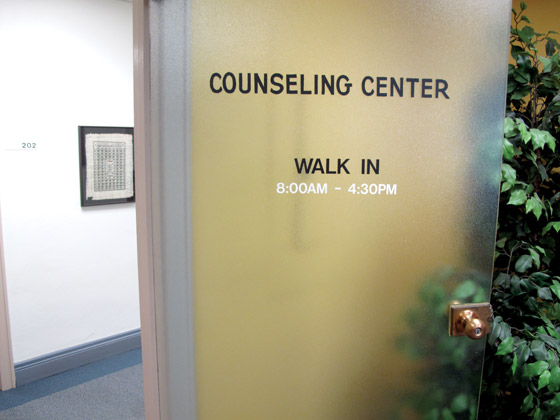Millennials reported the highest levels of stress compared to past generations in a 2015 American Psychology Association survey called Stress Snapshot.
On a 10-point scale, millennials rated their stress levels at 5.5. Level 10 is the highest, and it identifies a “great deal of stress.”
“I think most people in higher education tend to drive and motivate themselves with stress and fear,” Mike Zebrowski, director of the Counseling Center, said in an email. “We do seem to be seeing a rising level of stress with college students and we are trying to meet that with many options across campus to help.”
Students can feel stressed for a variety of reasons including student loans, the job search, academic performance and relationships.
“Rates of depression, anxiety and other mental illnesses go up during college,” Markie Pasternak, president of Active Minds and a senior in the College of Arts & Sciences, said in an email. “Active Minds works to connect students across campus who can relate to having high rates of stress in college to create a mentally healthy campus.”
The APA identifies three different types of stress: acute, episodic acute and chronic. Acute is the most common and least threatening form, and chronic is long-term and the most damaging to every part of the body. Episodic lies in the middle of the spectrum.
“We sometimes think overly-stressed people have poor time management skills, but the reality is that stress responses are very real,” Jack Lundeen, a senior in the College of Arts & Sciences said. “Being overly-stressed, regardless of the stressor, creates a real health risk.”
The Counseling Center offers services to help students relieve stress throughout the school year. They include individual counseling sessions, “Mindful Minutes,” weekly group counseling and a “Zen Den” that uses biofeedback equipment to promote relaxation.
Zebrowski talked about the importance of finding the most effective stress reliever for each individual. He said the medical clinic and Helfaer Recreation Center on campus also provide services to de-stress students.
Students find that comparing themselves to their peers creates stress. Zebrowski said he encourages students to direct their focus away from that type of thinking.
“Students can focus on the true thought that they made it here and how they compare to others is not important to anyone,” Zebrowski said in an email. “They can try to focus on their goals and dreams and try to let go of the thoughts that pull them to compare themselves to others.”
The Marquette student wellness website provides resources on five “stress busters” for students: sleep, exercise, healthy meals and snacks, relaxation techniques and self-care tips.
College students need an average of nine to 10 hours of sleep per night, according to the site.
The page suggests meditation at St. Joan of Arc Chapel, yoga classes, guided imagery and deep breathing as some relaxation techniques on- and off-campus. The self-care tips include avoiding drugs and alcohol, finding support and connecting socially.



